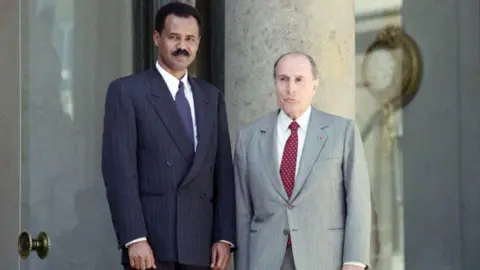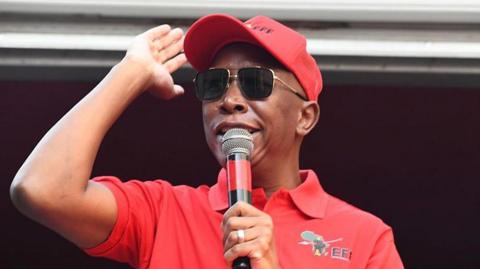Introduction
Isaias Afwerki, once hailed as a beacon of reform in post-independence Africa, has now ruled Eritrea with an iron fist for 32 years. The promise of democracy and freedom that accompanied Eritrea’s independence from Ethiopia in 1993 has long since faded, replaced by authoritarian rule, repression, and international isolation.
The Early Promise of Independence
After a decades-long armed struggle led by the Eritrean People’s Liberation Front (EPLF), Eritrea officially gained independence in 1993. Isaias, then 45 and charismatic, promised a different path from Africa’s strongman rulers. In his early speeches, he pledged to build a multiparty democracy and establish rule of law under a new constitution.

By 1995, Eritrea was receiving international praise. US President Bill Clinton even welcomed Isaias to the White House, applauding Eritrea’s early democratic efforts. The 1997 constitution, ratified by a constituent assembly, was expected to pave the way for elections and a functioning democratic system.
War with Ethiopia and the Beginning of Autocracy
Instead of democratic progress, Eritrea plunged into a brutal border war with Ethiopia in 1998. Isaias used the conflict as a justification to indefinitely postpone elections. After a peace agreement in 2000, domestic pressure for reform intensified. In 2001, a group of senior government officials known as the G-15 publicly demanded implementation of the constitution and democratic reforms.
The 2001 Crackdown: Silencing Dissent
On 18 September 2001, while global attention was fixated on the 9/11 attacks, Isaias launched a sweeping crackdown. All independent newspapers were shut down, journalists were arrested, and 11 G-15 members, including former ministers and senior officials, were detained without trial. They have never been seen again.
Isaias dismissed the entire notion of multiparty democracy as “a mess,” declaring that the ruling People’s Front for Democracy and Justice (PFDJ) was not a party but “the nation itself.” From that moment, Eritrea descended fully into authoritarian rule.
Decades of Repression and Isolation

In the years that followed, Isaias dissolved the transitional national assembly (2002) and sidelined the cabinet (2018). Key ministries operate without ministers, and real power remains concentrated solely in his hands.
The government maintains indefinite national service, often amounting to forced labor, justified by ongoing tensions with neighboring Ethiopia and other regional conflicts. Thousands of Eritreans risk their lives to flee the country, and Eritrea consistently ranks among the top nationalities seeking asylum globally.
According to the World Bank, Eritrea’s economy remains severely underdeveloped, with limited infrastructure, tight state controls, and minimal competition. Despite acknowledging economic struggles, Isaias refuses humanitarian aid, insisting on the principle of self-reliance.
The Failed Coup and Succession Uncertainty
An attempted coup in 2013 briefly shook Isaias’s grip on power when military officers seized control of state media to demand constitutional implementation and political reforms. The coup failed, and participants were arrested or killed.
Rumors of grooming his eldest son for succession reportedly met internal opposition. With no clear successor or credible opposition in sight, many fear a political vacuum could emerge after Isaias, who is now approaching 80.
International Relations: From the West to Russia and China

Once a frequent visitor to Western capitals, Isaias has retreated from the global stage in recent years. He now seeks closer ties with Russia and China, attending summits such as the 2023 Russia-Africa forum with President Vladimir Putin. His government maintains strong anti-Western rhetoric, framing criticism as foreign interference.
Supporters and Critics
Despite widespread repression, Isaias retains support among segments of the military, ruling elites, and parts of the Eritrean diaspora, some of whom view his leadership as a bulwark against Western domination.
However, countless Eritreans remain disillusioned. The absence of basic freedoms, political participation, and economic opportunity leaves many desperate for change that seems increasingly elusive.
Conclusion
Three decades after independence, Eritrea remains trapped under a regime that began with democratic promises but swiftly embraced authoritarianism. As Isaias Afwerki’s reign nears its fourth decade, Eritreans continue to wait—anxiously—for a future that may never come without significant political upheaval.
Explore more insights on authoritarian regimes here.
For further reading, visit:
Call to Action
What do you think is Eritrea’s future after three decades of Isaias Afwerki’s rule? Share your thoughts in the comments and follow us for more in-depth political analysis and world news.